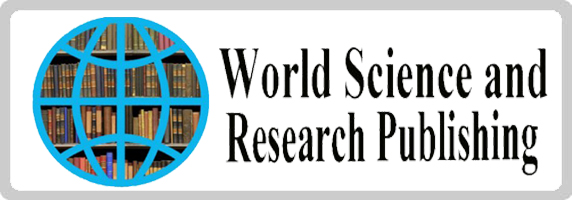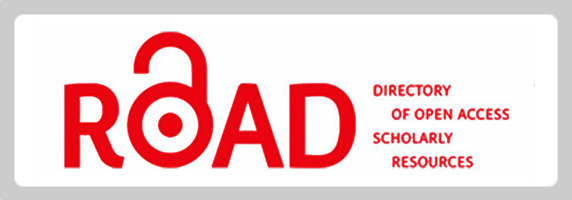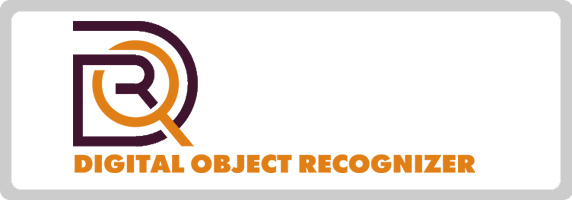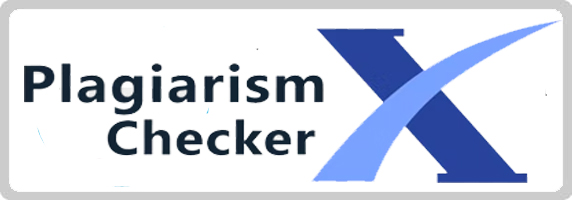Policies
Focus and Scope
The Global Journal of Animal Scientific Research is published in English in one volume of 4 issues per year, as a printed journal and in electronic form. Additional special issues may also be produced. No page charges are required from the authors. Global Journal of Animal Scientific Research accepts English-language manuscripts on all aspects of animal sciences. Contribution is open to researchers of all nationalities. Original research articles, review articles, short communications, case reports, and letters to the editor are welcome.
A Papers are welcome reporting studies in all aspects of animal science including:
- Animal breeding and genetics (such as quantitative and molecular analysis of animal performance, genetic improvement and resources, genetics of physiological process, selection schemes for economic animal improvement, impact on animal health, etc)
- Animal feeding and nutrition (such as food intake, digestion, nutrigenomics/nutrient: gene interactions, metabolism and metabolomics, nutritional control of function and performance, feed evaluation and feeding, diet and animal health)
- Animal reproduction
- Animal zoology (such as physiology and physical structure of animals (e.g., breeding mechanisms, nutritional needs, development etc) and its relevance to the ecosystem in which they live, evolution, phylogeny, genetics taxonomy and biodiversity of animals ,animal behavioral and psychological responses to human activity and the environment)
- Animal ecology( such as protection and restoration of endangered and threatened species, abundance and distribution of animals and the relevance to sustainability of the ecosystem ,predator-prey dynamics and interactions between animals in ecological communities )
- Animal biotechnology
- Animal physiology and functional biology of systems (such as reproductive and developmental biology, growth, muscle biology, lactation, exercise, product composition etc)
- Animal etiology, behavior and welfare (such as social and sexual behavior, animal- man relationships, adaptation, stress, impact of management and environment on health, etc)
- Animal products technology
- Animal management and economics
- Animal products processing and animal by-products
- Animal microbiology
- Fisheries (such as fisheries in salt, brackish and freshwater systems, and all aspects of associated ecology, environmental aspects of fisheries, and economics)
- Livestock farming systems, environmental impact and climate change (such as sustainable livestock management systems, whole farm management strategies, animal work, systems modeling, traceability, socio-economic consequences of systems, the impact of animals on biodiversity and landscape and climate change, etc).
- Other related topics (such as engineering, farming and land-use management and to other disciplines in relation to animal science)
Section Policies
Original Articles
Review Articles
Short Communications
Case Reports
Peer Review Process
The practice of peer review is intended to ensure that only good science is published. As an objective method of guaranteeing excellence in scholarly publishing, it has been adopted by all reputable scientific journals. Our referees play a vital role in maintaining the high standards of the Journal of Pragmatics, which is why all incoming manuscripts are peer reviewed following the procedure outlined below. (For procedures regarding Special Issues, see the Note at the end of this document).

Initial manuscript evaluation
One of the Chief Editors first evaluates all submitted manuscripts. It is rare, but it is possible for an exceptional manuscript to be accepted at this stage. Manuscripts rejected at this stage are insufficiently original, have serious scientific flaws, have poor grammar or English language, or are outside the aims and scope of the journal. Those that meet the minimum criteria are normally passed on to at least two expert referees for reviewing. Authors of manuscripts rejected at this stage will usually be informed within two weeks of receipt.
Type of peer review
The GJASR employs ‘double blind’ reviewing, in which the referees remain anonymous to the author(s) throughout and following the refereeing process, whilst the identity of the author(s) is likewise unknown to the reviewers.
How the referee is selected
Whenever possible, referees are matched to the paper according to their expertise. As our reviewer database is constantly being updated, we welcome suggestions for referees from the author(s), though such non-binding recommendations are not necessarily used.
Referee reports
Referees are asked to evaluate whether the manuscript:
• Is original as to thought and method (including data)
• Is methodologically sound
• Has results which are clearly presented and support the conclusions
• Correctly and exhaustively references previous relevant work
• Follows appropriate ethical guidelines, especially as concerns plagiarism
• Clearly adds to the knowledge and development of the field
Language correction is not part of the peer review process, but referees are encouraged to suggest corrections of language and style to the manuscript. In the final round, the handling Editor will check matters of linguistic and stylistic correctness, and may suggest or apply corrections at this point. In rare cases, the manuscript may be returned to the author(s) for a full linguistic and stylistic revision.
How long does the review process take?
The time required for the review process is dependent on the response of the referees. For the Journal of GJASR, the typical time for the first round of the refereeing process is approximately 4 weeks, with a maximum of three months. Should the referees’ reports contradict one another or a report is unnecessarily delayed, a further expert opinion may be sought. In the rare cases when it is extremely difficult to find a second referee to review the manuscript, whilst the one referee’s extant report has thoroughly convinced the handling Editor, a decision to accept, reject or ask the author for a revision may be made, at the handling Editor’s discretion, on the basis of only one referee report. The handling Editor’s decision will be sent to the author with the referees’ recommendations, usually including the latter’s verbatim comments. As a rule, revised manuscripts are sent to the initial referees for checking; these may then request further revision.
Final report
A final decision to accept or reject the manuscript will be sent to the author along with the recommendations made by the referees, including (if applicable) the latter’s verbatim comments.
The Chief Editor's decision is final
Referees advise the Chief Editor, who is responsible for the final decision to accept or reject the article.
This journal provides immediate open access to its content on the principle that making research freely available to the public supports a greater global exchange of knowledge.
Open access publishing proposes a relatively new model for scholarly journal publishing that provides immediate, worldwide, barrier-free access to the full-text of all published articles. Open access allows all interested readers to view, download, print, and redistribute any article without a subscription, enabling far greater distribution of an author's work than the traditional subscription-based publishing model. Many authors in a variety of fields have begun to realize the benefits that open access publishing can provide in terms of increasing the impact of their work.
This journal utilizes the LOCKSS system to create a distributed archiving system among participating libraries and permits those libraries to create permanent archives of the journal for purposes of preservation and restoration. More...
Licensing
GJASR publishes all its journals in full open access under a Attribution-NonCommercial-NoDerivatives 4.0 International (CC BY-NC-ND 4.0) license. This allows the scientific community and the general public to gain unlimited, free and immediate access to scholarly articles, and to reuse the content freely provided that proper attribution is given to the original authors.
Article Publication Charges (APC)
Article Publication Charges (APC) in GJASR is free of charge. There are no fees payable to submit or publish in this journal.
Publication Ethics and Publication Malpractice Statement
Committee on Publication Ethics (COPE) rules are approved by the journal editorial team.
COPE website: https://publicationethics.org/resources/guidelines
Publication and Authorship
• All submitted papers are subject to strict peer-review process by at least two international reviewers that are experts in the area of the particular paper. Reviewers are being selected by Associate Editors and Editor in Chief. Author also can propose reviewers for some journals and article types.
• The factors that are taken into account in review are relevance, originality, readability, statistical validity and language.
• The possible decisions include acceptance, minor revisions, major revision or rejection.
• If authors are encouraged to revise and resubmit a submission, there is no guarantee that the revised submission will be accepted.
• Rejected articles will not be re-reviewed.
• The paper acceptance is constrained by such legal requirements as shall then be in force regarding libel, copyright infringement and plagiarism.
• No research can be included in more than one publication, whether within the same journal or in another journal.
Authors' Responsibilities
• Authors must certify that their manuscript is their original work.
• Authors must certify that the manuscript has not previously been published elsewhere, or even submitted and been in reviewed in another journal.
• Authors must participate in the peer review process and follow the comments.
• Authors are obliged to provide retractions or corrections of mistakes.
• All Authors mentioned in the paper must have significantly contributed to the research. Level of their contribution also must be defined in the “Authors’ Contributions” section of the article.
• Authors must state that all data in the paper are real and authentic.
• Authors must notify the Editors of any conflicts of interest.
• Authors must identify all sources used in the creation of their manuscript.
• Authors must report any errors they discover in their published paper to the Editors.
• Authors must not use irrelevant sources that may help other researches/journals.
• Authors cannot withdraw their articles within the review process or after submission, or they must pay the penalty defined by the publisher.
Peer Review/Responsibility for the Reviewers
• Reviewers should keep all information regarding papers confidential and treat them as privileged information.
• Reviews should be conducted objectively, with no personal criticism of the author. No self-knowledge of the author(s) must affect their comments and decision.
• Reviewers should express their views clearly with supporting arguments in 500 to 1000 words.
• Reviewers may identify relevant published work that has not been cited by the authors.
• Reviewers should also call to the Editor in Chief's attention any substantial similarity or overlap between the manuscript under consideration and any other published paper of which they have personal knowledge.
• Reviewers should not review manuscripts in which they have conflicts of interest resulting from competitive, collaborative, or other relationships or connections with any of the authors, companies, or institutions connected to the papers.
Editorial Responsibilities
• Editors (Associate Editors or Editor in Chief) have complete responsibility and authority to reject/accept an article.
• Editors are responsible for the contents and overall quality of the publication.
• Editors should always consider the needs of the authors and the readers when attempting to improve the publication.
• Editors should guarantee the quality of the papers and the integrity of the academic record.
• Editors should publish errata pages or make corrections when needed.
• Editors should have a clear picture of a research's funding sources.
• Editors should base their decisions solely one the papers' importance, originality, clarity and relevance to publication's scope.
• Editors should not reverse their decisions nor overturn the ones of previous editors without serious reason.
• Editors should preserve the anonymity of reviewers (in half blind peer review journals).
• Editors should ensure that all research material they publish conforms to international accepted ethical guidelines.
• Editors should only accept a paper when reasonably certain.
• Editors should act if they suspect misconduct, whether a paper is published or unpublished, and make all reasonable attempts to persist in obtaining a resolution to the problem.
• Editors should not reject papers based on suspicions; they should have proof of misconduct.
• Editors should not allow any conflicts of interest between staff, authors, reviewers and board members.
• Editors must not change their decision after submitting a decision (especially after reject or accept) unless they have a serious reason.
Publishing Ethics Issues
• All editorial members, reviewers and authors must confirm and obey rules defined by COPE.
• Corresponding author is the main owner of the article so she/he can withdraw the article when it is incomplete (before entering the review process or when a revision is asked for).
• Authors cannot make major changes in the article after acceptance without a serious reason.
• All editorial members and authors must publish any kind of correction honestly and completely.
• Any notes of plagiarism, fraudulent data or any other kinds of fraud must be reported completely to COPE.
Ethical Guidelines
Ethical considerations must be addressed in the materials and methods. Please state that informed consent was obtained from all human adult participants and from the parents or legal guardians of minors. Include the name of the appropriate institutional review board that approved the project. Indicate in the text that the maintenance and care of experimental animals complies with national Institutes of health guidelines for the humane use of laboratory animals, or those of your Institute or agency.
Conflicts of Interest
Authors must acknowledge and declare any sources of funding and potential conflicting interest, such as receiving funds or fees by, or holding stocks and shares in, an organization that may profit or lose through publication of your paper. Declaring a competing interest will not lead to automatic rejection of the paper, but we would like to be made aware of it.
Conflicts of interest (COIs, also known as ‘competing interests’) occur when issues outside research could be reasonably perceived to affect the neutrality or objectivity of the work or its assessment. Potential conflicts of interest must be declared—whether or not they actually had an influence—to allow informed decisions. In most cases, this declaration will not stop work from being published nor will it always prevent someone from being involved in a review process.
If unsure, declare a potential interest or discuss with the editorial office. Undeclared interests may incur sanctions. Submissions with undeclared conflicts that are later revealed may be rejected. Published articles may need to be re-assessed, have a corrigendum published, or in serious cases be retracted. For more information on COIs, see the guidance from the ICMJE and WAME.
Conflicts include the following:
• Financial—funding and other payments, goods and services received or expected by the authors relating to the subject of the work or from an organization with an interest in the outcome of the work
• Affiliations—being employed by, on the advisory board for, or a member of an organization with an interest in the outcome of the work
• Intellectual property—patents or trademarks owned by someone or their organization
• Personal—friends, family, relationships, and other close personal connections
• Ideology—beliefs or activism, for example, political or religious, relevant to the work
• Academic—competitors or someone whose work is critiqued
(http://www.icmje.org/coi_disclosure.pdf)
Plagiarism
Taking materials (including tables, figures, and data; or extended text passages) from others’ works and submitting it as one’s own is considered plagiarism and is not permitted. All manuscripts will be checked by Plagiarism Software before review process.
Complaints
What kinds of complaint will we consider?
Complaints may relate to a failure of process (e.g. lengthy delays) or a severe misjudgement (e.g. an improperly applied retraction notice). They may also relate to author or reviewer misconduct. Complaints may be made by anyone, including authors, reviewers and readers.
All complaints must be within the scope of the GJESR Editorial Office’s remit – i.e. related to the content, policies or processes of the journal. We will not consider complaints where the complainant simply disagrees with a decision taken by the Editorial team (see appeals process below).
How to make a complaint
Complaints should be emailed to editor.wsrp@gmail.com. Please provide as much detail as possible and include supporting information where appropriate (for example, copies of email correspondence).
If your complaint relates to a specific article, please include the title and DOI if it is already published and the manuscript ID number if it is unpublished.
How we handle complaints
We aim to formally acknowledge all complaints within five working days. Please note that the editorial office is not staffed at weekends. Where possible we will provide a full response within four weeks. Where this is not possible we will provide regular interim communications, at least every four weeks. Complaints will be dealt with by the editorial staff wherever possible, with reference to our policies and guidelines, but will be escalated to the Editor where necessary. The Editor has the right to then consult with any third party over the issue, and make a final decision. That final decision shall be binding, and the matter shall be deemed closed.
Where a serious complaint is made about an Editor, it will be independently investigated by two members of the Editorial Board. The purpose of the investigation is to establish that correct procedures have been followed, that decisions have been reached based on academic criteria and that personal prejudice or bias has not influenced the outcome.
Complaints or concerns about author or reviewer misconduct
If you wish to complain or raise a concern about suspected author or reviewer misconduct, please refer to our editorial policy for more detail about our processes for dealing with allegations and the kind of evidence we might require. The process for raising these complaints and concerns is the same as above.
Concerns may include, but are not limited to:
• Suspicion of an ethical problem with a manuscript (including undeclared conflicts of interest, false ethical declarations, use of identifiable images without consent or use of copyright images without permission)
• Suspicion of unethical image manipulation in a published article
• Suspected manipulation of the publication process (including practices such as duplicate publication, self-plagiarism, salami-slicing or excessive self-citation)
We take allegations of misconduct very seriously and will investigate following COPE guidelines: https://publicationethics.org/misconduct
Complaints about advertising
If you are unhappy about an advertisement you have seen in GJESR we recommend contacting the advertiser directly. If there is no response you can contact your national regulator, such as the UK’s Advertising Standards Authority.
You are also welcome to contact us as detailed above. Generally, this will result in one of four outcomes:
1. We may confirm that the advertising complies with our guidance and does not require any changes.
2. We may ask the advertiser to revise the advertisement.
3. We may refuse to display advertising for the product in future.
4. We may escalate the complaint to the advertiser or the relevant advertising standards authority.
If your complaint is not satisfactorily resolved:
If you do not feel your complaint has been addressed, you may wish to refer it further.
Appeals
We will consider appeals against the Editor’s decision only under highly specific circumstances and usually only where a clear breach of policy can be demonstrated.
Rejected manuscripts
The most common reasons for rejecting manuscripts are:
• The article content is not within the scope of the journal;
• The article is not written in clear and intelligible English;
• Authors have not completed the relevant declarations relating to ethics and funding;
• The article does not conform to our ‘Guidelines for Authors’ in terms of content, style and/or formatting.
In the last two instances, articles are usually reopened to authors to allow changes to be made within a 6 week window. Failure to meet this deadline will result in automatic rejection of the manuscript.
We will not consider appeals against the Editor’s decision under any of these circumstances.
It is the author’s responsibility to provide the correct contact details, to monitor correspondence from our office, to respond promptly using the correct email address, and to comply with our requirements. Where a manuscript has been rejected because authors have failed to meet the revision deadline, resubmission is possible but standard fees will be payable.
Rejection of revised articles
Revised articles will not usually be rejected provided they conform to our guidelines for revised versions. We will not consider appeals against the Editor’s decision to reject a revised article if it does not meet our requirements.
Authors whose manuscript has been rejected on other grounds may follow the appeals process (Appeals process) if they wish to make an appeal, but note that Editors are unlikely to reverse their original decision unless significant new information is supplied or it can be demonstrated that our processes were at fault.
Retracted articles
Editors do not take the decision to retract articles lightly and will usually have conducted an extensive investigation before doing so. We will only consider appeals against retractions if substantial evidence can be provided to demonstrate that the decision was unjust.
Appeals process
Any appeals against the Editor’s decision must be made by email to editor.wsrp@gmail.com within two weeks of the decision. You will need to provide a detailed explanation of why you disagree with the decision and include supporting information. You should also include the article title and DOI if you are appealing a decision to retract a published article and the manuscript ID number you are appealing a decision to reject an unpublished manuscript.
We will acknowledge receipt of your appeal within five working days and it will be passed to the Editors for consideration. Wherever possible, the appeal will be considered by an Associate Editor who was not involved in the original decision. The handling Editor will make a recommendation to reject the appeal, request further information or uphold the appeal. We aim to resolve all appeals within four weeks. The Editor’s decision on these matters is final and we will not consider further appeals on the same grounds.
Sharing and Citing your Research Data
In the academic community there is an increased pressure on researchers to share and archive their data, with many funders now mandating data publication. The sharing of data enables others to reuse experimental results and supports the creation of new work built on previous findings, improving the efficiencies of the research process and supporting the critical goals of transparency and reproducibility.
At WSRP, we support the growing movement to make research more open, because this leads to a fairer, more efficient and accountable research landscape, which will ultimately drive a more effective and faster pace of discovery. We are committed to improving openness, transparency, and reproducibility of research. Fundamental to enabling reproducible research is the easy access to and ready discovery of its supporting data, made possible through a robust and universal framework that allows research data to be cited through standard reference lists. This will ensure that data is treated as a first-class research object, easily accessible as part of the scholarly literature, and that researchers are credited for their work.
Journal's policy on ethical oversight
Ethical oversight should include, but is not limited to, policies on consent to publication, publication on vulnerable populations, ethical conduct of research using animals, ethical conduct of research using human subjects, handling confidential data and of business/marketing practices (https://publicationethics.org/oversight)
Misconduct
If author (s) are found guilty of breaching this code of ethics or guilty of research misconduct, the journal reserves the right to reject/retract or withdraw the paper and declines further submissions from the offending authors for a period of up to five years by informing all the interested parties, including journal editors and authors, the author's department head and/or institutional office of Publication misconduct.
Guidelines for Retracting Articles
Allied Business Academies Journals take the responsibility to maintain the integrity and completeness of the scholarly record of the content for the end users spanning the length and the breadth of the globe. The journal place great importance on the authority of articles after they have been published and our policy is based on the best practice followed in the academic publishing community.
Editor of a learned journal is solely and solely responsible for accepting or rejecting any manuscript for publication. The journal's Editorial board and the legal experts extend their support to the editor regarding copyright infringement and plagiarism. The final outcome will be archived for the readers and the entire scholarly world in digital form. This would remain permanent, as a historical record for the development of future scholarship in any given field. Articles that have been published shall remain unaltered as far as possible. However, occasionally, if any unavoidable circumstances arise after the publication, the article will be retracted or even removed from a particular journal. Such actions must not be undertaken lightly and can only occur under exceptional circumstances, such as: severe breach of research and publication ethics like violation of copyrights and repetition or republication of the manuscript by manipulating the facts and figures.
Article withdrawal: This is applicable for manuscripts in the stage of “Article in Press” which represents the early versions of the accepted articles. If any article at this stage infringes the professional ethical codes, such as multiple submissions, bogus claims of authorship, plagiarism, fraudulent use of data, and the article may be withdrawn depending on the Editor’s discretion. In this regard, editors assess and analyze the entire situations, on a case by case basis.
Article retraction: Infringements of professional ethical codes, such as multiple submissions, sham claims of authorship, plagiarism, fraudulent use of data and similar claims will lead to the retraction of an article. Occasionally, a retraction may be considered to correct errors in submission or publication.
Article removal and replacement: Subjected to legal limitations of the publisher may withdraw any article faces issues related to copyright holder or author(s). Identification of false or inaccurate data representation, as it may pose a serious risk and involves academic data tampering or other fraudulent and unfair practice; hence it should be handled firmly. The core objective of these measures is necessary to maintain the integrity of the academic record.
Human and animal Ethics
Authors using humans, animals, or fetal tissue in their experiments should submit the ethical approval from their organization or institute.
Journal's policy on intellectual property
All policies on intellectual property, including copyright and publishing licenses, should be clearly described. In addition, any costs associated with publishing should be obvious to authors and readers.
Getting involved in the peer review process can be a highly rewarding experience that can also improve your own research and help to further your career.
Please contact the Editor for the journal, with a copy of your CV, to be considered as a reviewer.
The sources of income include subscription for print issues. Editorial decisions of World Science and Research Publishing (WSRP) journals are not influenced by advertising revenue or reprint potential and editorial and advertising functions at our journals are independent. Although WSRP journals do not accept any advertisments, advertisers and donors should have no control over editorial material under any circumstances.
Reprinted articles of WSRP journals are published as they originally appeared in the journal (including subsequent corrections); that is, there is no alteration or revision of articles for a supplement or reprint other than corrections. The content of special supplementary issues (if any) are determined only by the usual editorial process and are not influenced in any way by the funding source or advertisers. Limitations on how reprinted articles may be combined with advertisements or endorsements of a product or company are explicitly addressed in journal policy. WSRP journals supplements undergo peer review the same as the rest of the journal.










